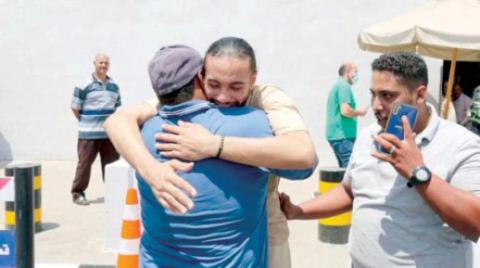
Egypt’s Presidential Pardon Committee, founded by President Abdel Fattah el-Sisi in 2016, is paving the way to issue a new list to release youth detained in the events that followed the January 25 revolution.
Committee Member Tareq al-Khawli told Asharq Al-Awsat that the committee will start receiving preparation applications for the fifth list of detainees in protest cases within days.
“The new list comes as a continuation of the efforts of the Amnesty Committee for those who did not commit violence or did not violate the Demonstration Law,” Khawli said.
“It is a continuation of the presidents initiative to issue amnesties for youth imprisoned in these cases in order to ensure their future and their integration into the society.”
The Presidential Pardon Committee continues its meetings to prepare for the fifth list and receive its names through the Parliament, the National Council for Human Rights, human rights organizations and citizens through the Committees website.
"The committee excludes people from the release lists, who are convicted of misdemeanors involving the government, explosives and bribery, fraud crimes, offenses related to the disruption of transport, offenses under the Weapons and Ammunition Act, drug offenses and trafficking, and crimes stipulated by the construction law,” observers said.
Notably, the presidential pardon committee issued four lists before. The first list was in November 2016, when 82 prisoners were released, the second was in March 2017, when 203 were released, the third was in June 2017, when 283 were released and finally the fourth in May 2018, when 332 detainees were released.
In October 2016, President Sisi announced the formation of a presidential pardon committee, headed by political thinker Osama al-Ghazaly Harb, for pardoning detainees with charges pending further investigation.
Article 155 of the Egyptian constitution gives the president the power to pardon or commute the sentence of prisoners following consultations with the Cabinet. This happens only in case their offenses do not include violence or attacks on public or security properties. The pardon usually takes place during official and religious holidays.











